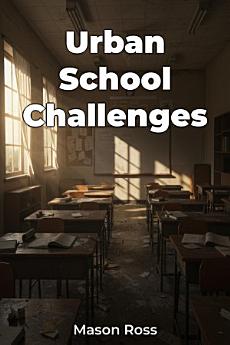Urban School Challenges
About this ebook
A key insight is that addressing these inequities requires multi-pronged approaches including policy reforms, strategic investments in teacher development, and community-based initiatives. The book unfolds by examining specific challenges such as overcrowding and resource constraints, using case studies of urban school districts to illustrate problems and potential solutions. It then explores innovative approaches like community schools and personalized learning models.
Unique to this book is its emphasis on the lived experiences of students and educators, providing a nuanced account of the challenges and possibilities. By connecting to broader discussions in urban planning and social work, the book highlights how social and economic issues intertwine with challenges facing urban schools. The concluding chapter synthesizes key findings and presents a framework for systemic change.








